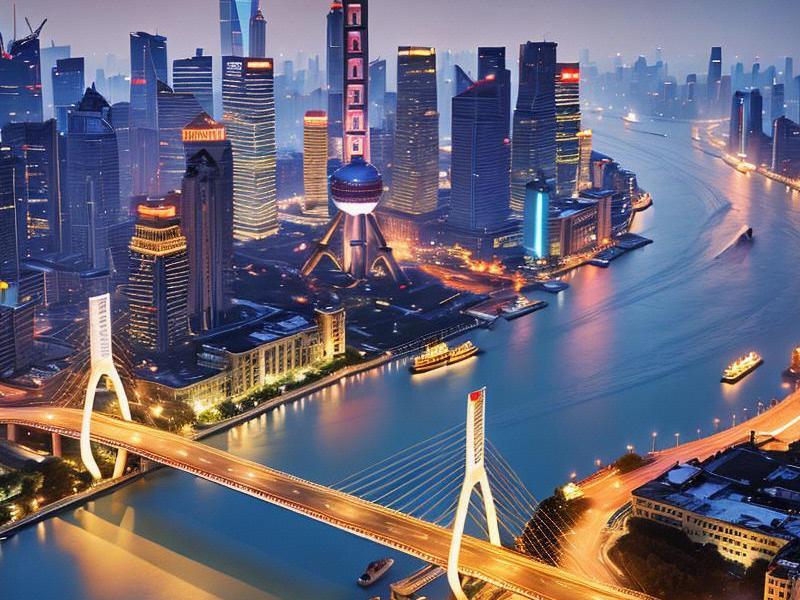
Nestled in the heart of China, Shanghai stands as a beacon of modernity and a testament to the country's rapid urbanization. Yet, its allure extends far beyond the skyscrapers and bustling streets of the Bund and Pudong. Shanghai's neighboring regions, each with its own distinct character and history, offer a rich tapestry of cultural experiences that provide a deeper understanding of the broader Yangtze River Delta region.
To the north lies the ancient city of Suzhou, often referred to as the "Venice of the East." Known for its classical gardens, Suzhou is a UNESCO World Heritage site that has been celebrated for centuries for its exquisite beauty and harmony with nature. The Humble Administrator's Garden, one of the largest and most famous gardens in Suzhou, is a masterpiece of Chinese landscape design. Its meticulously planned landscapes, ponds, and pavilions reflect the philosophy of balance and tranquility that has long been a cornerstone of Chinese culture.
As we move further north, we encounter the historic city of Nanjing, the capital of Jiangsu Province. Nanjing's rich history dates back over 2,500 years, and it has been the capital of several Chinese dynasties. The city is home to the Sun Yat-sen Mausoleum, a site of great historical significance, as well as the Ming Xiaoling Mausoleum, the burial site of Emperor Zhu Yuanzhang, the founder of the Ming Dynasty. These landmarks, along with the ancient city walls and the Confucius Temple, offer a glimpse into China's imperial past and its deep reverence for Confucianism.
To the west of Shanghai lies the picturesque city of Hangzhou, known for its stunning West Lake and the surrounding hills. Hangzhou was the capital of the Southern Song Dynasty and has been a center of culture, art, and commerce for centuries. The West Lake, a UNESCO World Heritage site, is renowned for its serene beauty and the numerous temples, pagodas, and bridges that dot its shores. The city's Longjing tea, or Dragon Well Tea, is also famous worldwide for its delicate flavor and high quality.
爱上海同城对对碰交友论坛 Southwest of Shanghai, the city of Wuxi offers a blend of natural beauty and modern development. Wuxi is situated on the shores of Taihu Lake, one of China's largest freshwater lakes, and is known for its scenic spots such as the Xihui Park and the Grand Canal. The city is also a hub for technology and innovation, with a growing number of high-tech industries and research institutions.
The cultural exploration of Shanghai and its neighbors is not limited to historical sites and natural landscapes. The region is also a melting pot of culinary traditions, each city offering its own unique flavors and dishes. In Shanghai, visitors can savor the authentic taste of Shanghainese cuisine, characterized by its sweet and savory flavors, while Suzhou is famous for its delicate and refined dishes. Nanjing's cuisine, known as Jinling cuisine, is noted for its spiciness and the use of fresh ingredients, while Hangzhou's dishes are celebrated for their lightness and freshness, reflecting the region's emphasis on health and harmony.
In addition to its culinary offerings, the region is also a center for traditional arts and crafts. Suzhou is renowned for its silk production and embroidery, with the Suzhou embroidery being particularly famous for its intricate designs and fine craftsmanship. Nanjing is known for its purple clay teapots, or "zisha" teapots, which are highly prized for their durability and aesthetic appeal. Hangzhou's silk products, including silk scarves and ties, are also world-renowned for their quality and elegance.
上海龙凤419是哪里的 The dynamic development of Shanghai and its neighboring regions is another aspect that makes this area a fascinating destination. As China's economic powerhouse, Shanghai continues to lead the way in urbanization and modernization. The city's Pudong district, once a rural area, has transformed into a global financial hub, with iconic skyscrapers such as the Oriental Pearl Tower and the Shanghai Tower. The development of the Shanghai Free-Trade Zone has further positioned the city as a gateway for international trade and investment.
Nanjing and Hangzhou have also seen significant development in recent years, with Nanjing becoming a major center for technology and innovation and Hangzhou emerging as a leading city in the digital economy. The Alibaba Group, one of the world's largest e-commerce companies, is headquartered in Hangzhou, and the city is home to numerous startups and tech enterprises.
The cultural and historical richness of Shanghai and its neighboring regions is not only a source of pride for the local population but also a major draw for tourists from around the world. The region's well-preserved ancient cities, stunning natural landscapes, and vibrant modern developments offer a unique and unforgettable travel experience.
上海私人外卖工作室联系方式 For those interested in exploring the cultural tapestry of this region, there are numerous opportunities to immerse oneself in the local culture. Visitors can take guided tours of historical sites, participate in traditional arts and crafts workshops, and sample the regional cuisine. The region's numerous museums and cultural centers provide valuable insights into the history and culture of the Yangtze River Delta.
In conclusion, the exploration of Shanghai and its neighboring regions offers a fascinating journey through time and space, revealing the rich cultural heritage and dynamic development of this unique area. From the classical gardens of Suzhou to the historic sites of Nanjing, the scenic beauty of Hangzhou, and the modern developments of Wuxi, the region is a treasure trove of experiences that cater to a wide range of interests. Whether you are a history buff, a nature lover, a foodie, or a tech enthusiast, the Yangtze River Delta region has something to offer for everyone.
As we continue to explore and appreciate the cultural tapestry of Shanghai and its neighbors, we gain a deeper understanding of the region's unique character and its significance in the broader context of Chinese history and culture. The journey through this vibrant region is not just a travel experience but also a journey of discovery and enlightenment.
